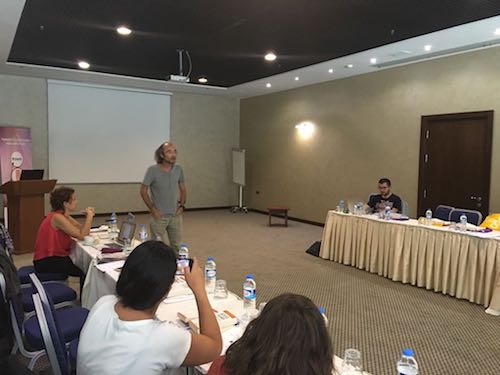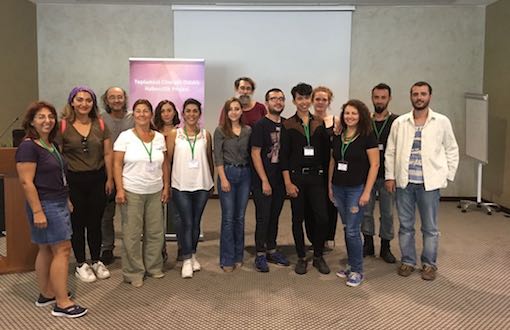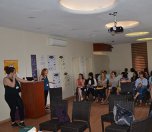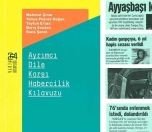Click to read the article in Turkish
The ninth leg of the Gender Based Journalism Workshop run by IPS (International Press Service) Communication Foundation and supported by Kaos GL (Kaos Gay and Lesbian Cultural Research and Solidarity Association) took place in Edirne on Saturday (September 23) following İstanbul, Mersin, İzmir, Bursa, Eskişehir, Trabzon, Diyarbakır and Muğla.
Journalists from Edirne and neighbouring provinces and participants have discussed gender based journalism and representation of women and LGBTIs on the media.
In the workshop, bianet freedom of expression news editor Elif Akgül talked about her experiences in bianet regarding gender based journalism while Yıldız Tar from Kaos GL explained LGBTI based journalism. bianet editor-in-chief Haluk Kalafat shared his knowledge on the praxis of gender based journalism in bianet.
Akgül: "A gender-based approach is necessary for all news reports"

Elif Akgül in her presentation all news reports in bianet had a gender based approach to all kinds of news covering a large spectrum from financial news to magazine and sports news. Akgül added that the first step to gender based journalism was to free the language of news-writing from discriminatory, aggressive and marginalizing elements and showed how this approach was being put into practice in bianet.
Tar: LGBTI news in thepress classified into three periods
Yıldız Tar from Kaos GL sald that the limited media visibility of LGBTIs began towads the end of the 60's and added that the following era could be classified into three periods.
She named the first period as the "freak" period in which the LGBTs appeared as "perverts from the Wes who come to destroy us and our values".
The following period was the period of "transvestite terror", Tar explained that there was almost no journalist who interviewed LGBTIs and when they did and the few who intended to to so, wrote only misrepresenting news.
"The intense police attacks against the sex workers in the 90's and the hate crimes against the transvestites and trans people living in Ülker street of İstanbul was misrepresented in the press", Tar added.
The third period is called the "soup period" Tar explains. This period is characterized by well written news on the one side and news written on the level of the 90's on the other.

Haluk Kalafat, also making a presentation on the workshop shared his knowledge on how gender based journalism was being practiced in bianet.
Following a Q&A section, the participants of the workshop came together and examined some news examples from local newspapers of Edirne such as the Edirne, Edirne Gündem and Uzunköprü Adalet newspapers and re-wrote the articles which were problematic in terms of a gender based and rights based journalism approach.
 About the project
About the project
"Gender Based Journalism Guidebook and Library Project" is being supported by the European Union European Tool for Democracy and Human Rights (DİHAA) Fund.
The project that will last two years aims to discuss the ways for transformation of discourses and practices of mainstream media's dominant prejudice towards gender.
In the first year, journalists and representatives from women and LGBTI organizations will come together in journalism workshops that will be organized in eight centers in Turkey and discuss the issues of male-dominated journalism practice and the ways to deal with these.
The second year will continue with regional workshops and round-table discussions. A gender based journalism guidebook and online library will be formed via the collective work that will emerge from deliberations of workshop content that is to be formed by newspaper and TV coverage monitoring.
Finally, a Gender Based Journalism Conference will be organized as part of the project.
Regarding coming workshops, you can contact the coordinator of the project Öznur Subaşı ([email protected])
(HK/DG)










